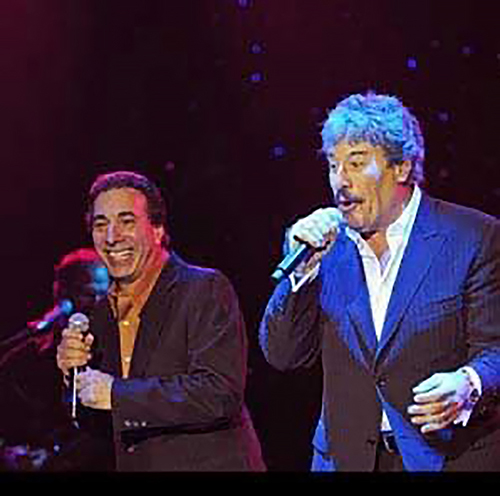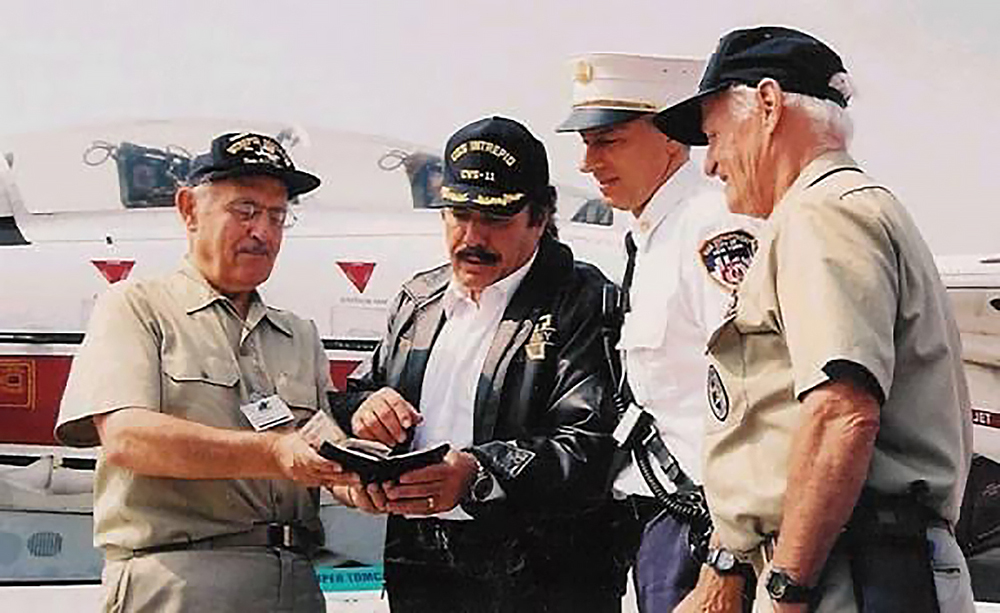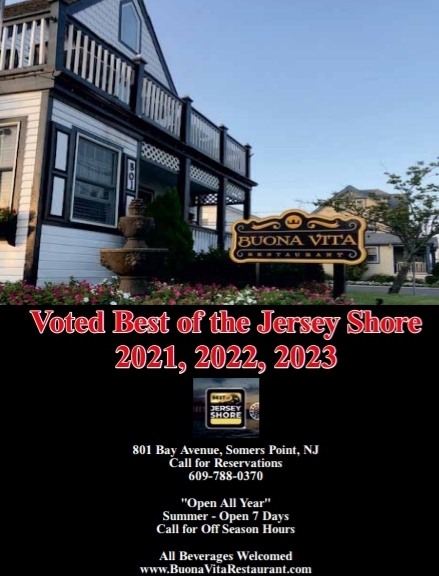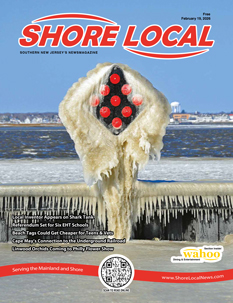By Erica Hoffman
As the daughter of an Atlantic City entertainment reporter, I grew up with close family friends who came with different levels of notoriety in the entertainment world. Although we weren’t related, over time, I was lucky enough to call many of these friends of my parents my “aunts” and “uncles.” Their fame meant nothing to me because, like most kids, I found adults boring. Unless they were on Nickelodeon or one of the shows on the CBS TGIF lineup, I wasn’t interested in their careers.
One day, I turned on the TV and was stunned. My Uncle Tony, the man whose lap I sat on as a toddler and giggled at the sight of what seemed to be the most prominent, bushiest mustache in the world, was on my TV singing with Thelma Hopkins or as I knew her, Aunt Rachel from one of my favorite TGIF shows, “Family Matters.”

The Spatz Family Archive
I would learn that this was just the tip of the iceberg. Not only was he an accomplished songwriter and performer, but he was also a record producer, a Broadway actor, and the star of his own variety show. He held multiple No. 1 singles on the Billboard Hot 100, for “Tie a Yellow Ribbon Round the Ole Oak Tree,” “Knock Three Times,” and other pop hits from the 1970s. I quickly realized Uncle Tony wasn’t just my Uncle Tony and wasn’t just a little well-known. He was a household name with a star on the Hollywood Walk of Fame and all the accolades that go with it.
After 64 years of performing live, Tony Orlando is putting down his microphone and hanging up his sequined jacket. His penultimate farewell show will be played to a sold-out crowd in the Superstar Theater at Resorts Casino, directly adjacent to his handprints on the outside of the theater, on March 16. His final performance will be at Mohegan Sun Arena just six days later.
I spoke to Orlando from Las Vegas, where he has been an entertainment staple for 61 years.
Hoffman: So, Uncle Tony, what about Atlantic City is so special to you?

Orlando: The first time I ever performed in Atlantic City, I was 17 years old at the Steel Pier with Dick Clark. It truly is my home casino town in the whole country. New York and New Jersey were my upbringings. These are my people. This is my home.
Hoffman: And the feeling Is mutual, speaking of New Jersey as your home. Congratulations on being inducted into the New Jersey Hall of Fame last year.
Orlando: Let me say, to be in there with Bruce Springsteen, Whitney Houston, Frank Sinatra, and Frankie Valley, among others, I was very humbled.
Hoffman: So, what do you have planned for this next chapter? You’ve been performing since you were 15 years old. Are you planning on living the retired life?
Orlando: Not me! I’m excited for what’s to come. I’m writing my next book, planning to write a Broadway show, and pitching ideas for films. I currently do a radio show on WABC New York on Saturday nights. It’s number one in its time slot. It streams to 173 countries, and it’s fun for me to do. What I love about it is they don’t tell me what to do; they let me do what I want, and I play every genre of music from the 1950s to now. It’s great.
Hoffman: Speaking of genres of music, who are you listening to right now?
Orlando: I listen to everything. I love it all. I’m a Swifty. She is talented and a fantastic lyricist, and seeing her show blows me away. People don’t realize she started in Atlantic City. She’s a tremendous talent.
Hoffman: You’ve played everywhere. What made you choose the Mohegan Sun Arena as the spot for your final show?
Orlando: When I decided to retire, Mohegan Sun Arena was my obvious choice. Tom Cantone, the president of entertainment, with whom I have been friends ever since his days as one of the top buyers in Atlantic City, became the president of sports and entertainment at Mohegan Sun. Resorts Atlantic City has become a Mohegan Sun property in recent years. My final shows will be at Resorts and then at Mohegan Sun Arena, a room in which I’ve worked every year since 2005. God’s hand was on this one. Ending this part of my career in this way is very meaningful to me.
Hoffman: And my last question, what’s one memory or career highlight that sticks out when you think of all the time you’ve spent in Atlantic City?
Orlando: Here’s a highlight. I remember my first show in Atlantic City and your dad, David Spatz, writing a bad review of me. I was sitting with Frank Sinatra, of all people. I said, “Frank, I just got a terrible review from a guy named David Spatz.” Sinatra says, “So did I, but let me tell you something: I called this guy David Spatz because he was right. I suggest you see if he was right because this guy has an eye; I would listen to him.”

So, on Sinatra’s advice, I called him, “David, this is Tony Orlando; you wrote a terrible review on me; you said that I talk too much, which was annoying.” “I’m sorry,” Spatz replied. I told him, “Like Frank Sinatra said, I just learned something from you.” “What do you mean?” Spatz asked. “Sinatra said you wrote him a bad review.” “Yes, I did; what did he say?” Spatz replied. “He said that he learned from you, and I want you to know I also learned from you.” After that, I asked him if we could have lunch, and he accepted. After lunch, while we were walking out, he turned and said, “Just because you bought lunch, don’t think I’m not going to say anything else bad about you.” And right then, we became brothers until the very end, and that’s how you became my niece.

















